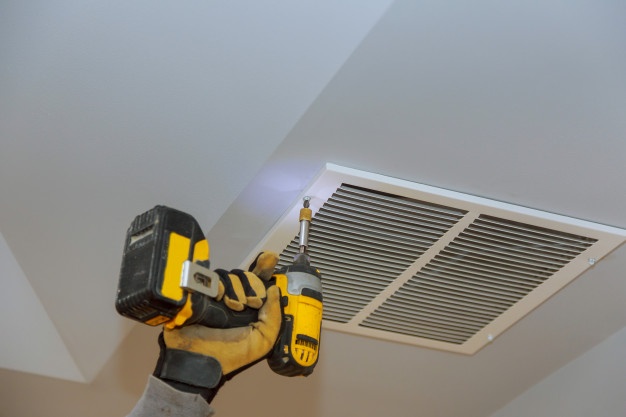Home ventilation is important to keep the house and its occupants healthy and comfortable. Ventilation is a key component to maintaining proper indoor air quality. Ventilation keeps air flowing through the home, eliminating contaminants, moisture buildup, and odours.
Research has shown that indoor air pollution can actually have more damaging effects on health than pollution in the air outside. Good home ventilation can help to mitigate these health risks while also protecting the home.
Exposure to mould caused by poor ventilation can cause health issues such as:
- Irritation of the eyes, nose, and throat
- Headaches
- Fevers
- Immune system issues
- Worsening of symptoms in those with autoimmune diseases
- Respiratory damage
Ventilation Can Help Reduce Condensation
Condensation occurs when humid air is cooled quickly and can no longer hold all of the moisture in the form of water vapour. The moisture migrates to the coldest surface available and condenses, forming water droplets on windows, walls, or other surfaces.
If moisture inside of the home is not controlled over time, it can result in peeling wallpaper, mould and mildew formation, and even structural damage to wood supports. Good ventilation can help to regulate temperature and control moisture levels.
Effective in Lowering Concentrations of Radon Gas
Radon gas is a colourless, odourless gas that is formed by the natural decay of uranium in rocks and soil in certain parts of the country.
Radon gas has been linked to some cases of lung cancer by the World Health Organization. In homes that are near mines, water treatment facilities, and caves, radon gas may become trapped if there is not adequate ventilation, causing concentrations of the gas to spike. When adequate ventilation is installed, it can reduce radon gas concentrations to healthy levels.
VOC Concentrations Can Be Decreased with Ventilation
VOCs, or volatile organic compounds, are emissions from household chemicals and furnishings that can become toxic in high concentrations. Storing chemicals properly and being conscientious about the VOC emissions from purchased furnishings and goods is important to reduce the concentration of VOCs in a home. Maintaining adequate ventilation can help to control concentrations of existing VOCs within a home, as it is nearly impossible to eliminate VOCs from indoor air.
Allergens May be Filtered Out of the Home
Allergens such as pollen, dust, and other irritants can become trapped and concentrated inside of a home when ventilation is inadequate. Proper ventilation will help to remove large particles and dust from the air. This can effectively help to reduce allergy symptoms, making the indoor air much more comfortable for allergy sufferers.
Helps Protect Respiratory Health and Prevent Asthma
Damp, mouldy conditions can contribute to the development of asthma and other respiratory conditions. Damp conditions can also form a perfect environment for dust mites to survive and multiply. When dust mites come into contact with the skin and respiratory system, it can cause eczema, itching, and breathing problems. Good ventilation can help to prevent these issues while supplying home inhabitants with fresh air.
Reduces Backdrafting Risks
When the pressure inside of the home is lower than the pressure outside of the home, the home is considered to have negative pressure. When a home has negative pressure, outdoor air is pulled into the home, which is called back-drafting. This can become dangerous when combustion gases such as carbon monoxide are pulled back into a chimney or other opening and become concentrated in a home. Ventilation can help to control the pressure inside of a home.
Ventilation without Energy Loss
The one issue that many homeowners have with ventilation is that most natural and even mechanical ventilation system cause the home to lose heat or cool as the inside air is cycled out.














